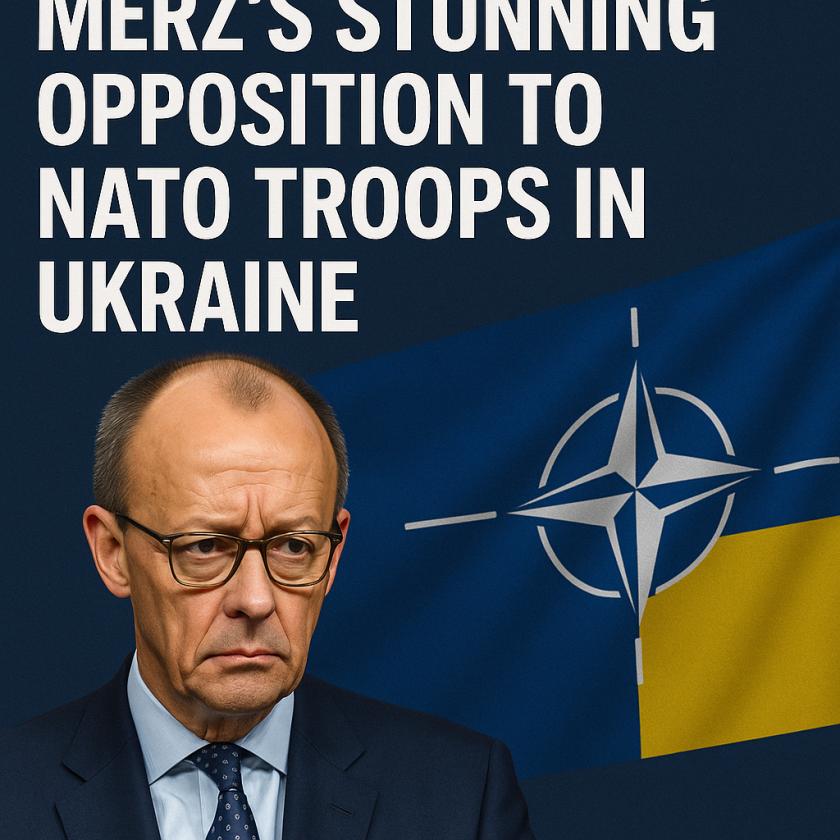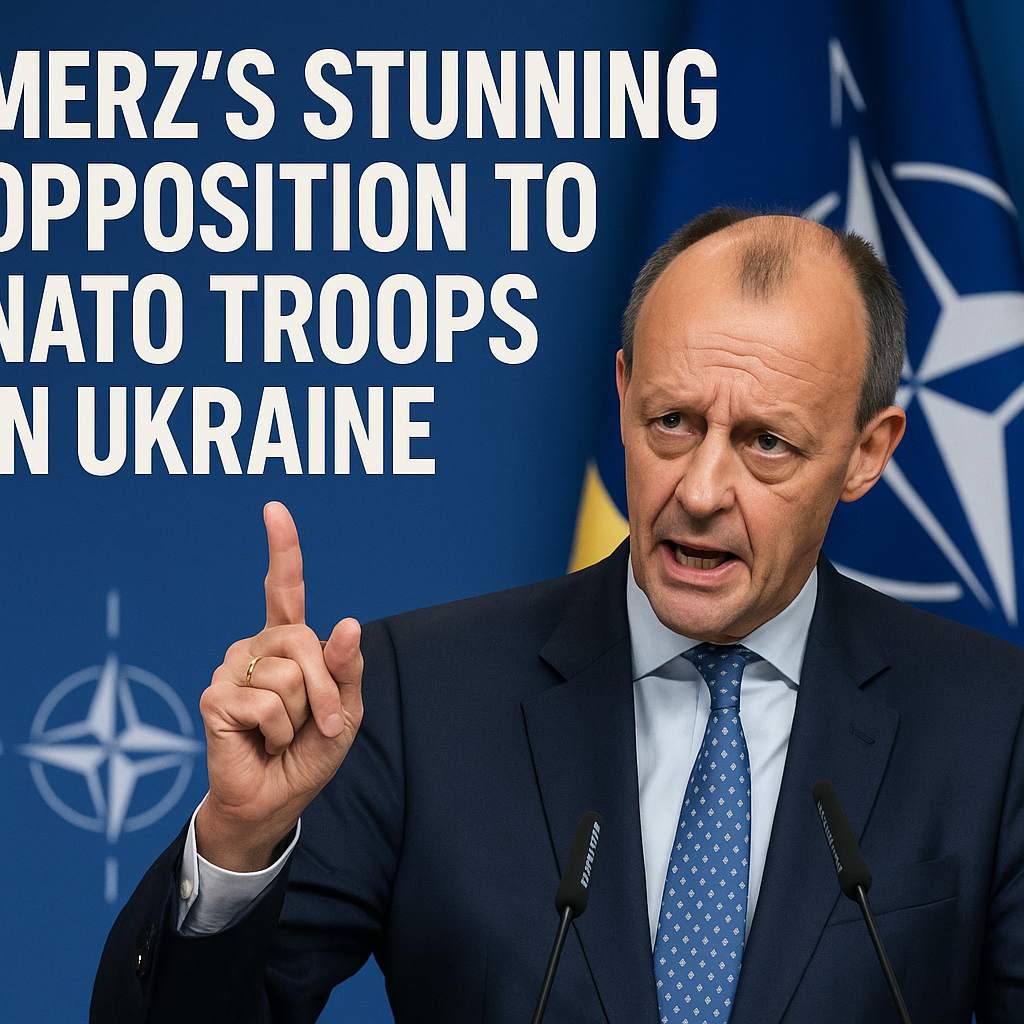Merz’s Stunning Opposition to NATO Troops in Ukraine
Merz’s Stunning Opposition to NATO Troops in Ukraine
In the ongoing discourse surrounding NATO’s involvement in Ukraine, Merz’s recent stance has sparked significant debate. Friedrich Merz, the leader of Germany’s opposition party, the Christian Democratic Union (CDU), has voiced a surprising opposition to the presence of NATO troops in Ukraine, generating both criticism and support within Germany and abroad.
A Shifting Narrative in NATO’s Strategy

Merz’s opposition is not an isolated viewpoint. It reflects a broader tension within NATO and among its member states regarding military engagement in the Ukraine conflict. Historically, NATO’s eastward expansion has been a contentious issue, with many arguing that it provoked Russia’s aggressive actions in Ukraine. Merz’s comments raise pertinent questions about the strategy and justification for NATO’s involvement.
Diverse Perspectives on Military Involvement
Several key arguments characterize the ongoing debate:
– Security vs. Escalation: Proponents of NATO troop involvement argue that a strong military presence is essential to deter Russian aggression and support Ukraine’s sovereignty. They see NATO troops as a stabilizing force that can prevent further territorial losses by Ukraine. Conversely, opponents, including Merz, caution that deploying troops might escalate the conflict into a broader war with Russia, which could have dire consequences for Europe.
– Domestic Political Strategy: Merz’s shift in tone might reflect domestic political calculations. The CDU is attempting to redefine its stance after significant losses in previous elections, tapping into public skepticism about foreign military engagements. Recent surveys suggest that a portion of the German populace is weary of endless military commitments, highlighting a potential political advantage for Merz’s party if they align with this sentiment.
– Historical Context: The legacy of military engagements in the Middle East and Afghanistan plays a role in shaping public opinion on NATO’s involvement in Ukraine. Critics of military intervention often reference these past experiences to argue against repeating what they see as historical mistakes. This historical lens informs Merz’s reluctance, as he posits that engaging too deeply in Ukraine could mire Germany in another prolonged conflict.
Balancing National Interests and International Obligations
While Merz’s position might appeal to a segment of the electorate concerned about escalating military involvement, it also poses questions about Germany’s role as a reliable NATO ally. Critics argue that wavering commitments could undermine collective security arrangements and embolden adversarial states, including Russia. The implications of Merz’s stance raise critical concerns regarding Germany’s foreign policy direction.
Moreover, as tensions persist, the dynamics of the geopolitical landscape are constantly shifting. NATO members are grappling with how to support Ukraine effectively while navigating the complexities of international diplomacy. The response within Germany illustrates an internal conflict regarding military support that could shape the country’s foreign policy for years to come.
The Road Ahead
As Merz’s position gains traction, it is essential to consider the broader implications of opposition to NATO’s military presence in Ukraine. Will this develop into a widespread movement that questions NATO’s roles in Europe, or will it remain a contentious point limited to a segment of German politics?
Several factors will influence this trajectory:
– Public Opinion: Ongoing shifts in public sentiment towards foreign military engagements will play a critical role. If opposition to troop deployments strengthens, it may encourage other leaders within NATO to adopt similar stances.
– Foreign Relations: How other NATO members, especially the U.S. and Eastern European nations, react to Germany’s emerging stance will also be significant. Solidarity among NATO allies is essential, and any perceived fractures could embolden adversaries.
– Future Conflicts: The situation in Ukraine is fluid, and future developments might force a recalibration of positions as new realities emerge on the ground. Germany’s decisions may evolve based on the conflict’s progress and its impact on European security.
Conclusion
Merz’s opposition to NATO troops in Ukraine opens a complex conversation about military involvement, national interests, and international responsibilities. The shifting landscape within Germany’s political sphere reflects broader anxieties regarding foreign engagements, particularly in light of past conflicts. As NATO continues to navigate this challenging terrain, understanding and deliberating these varied perspectives will be crucial in forging a cohesive and effective response to the ongoing crisis in Ukraine.






































